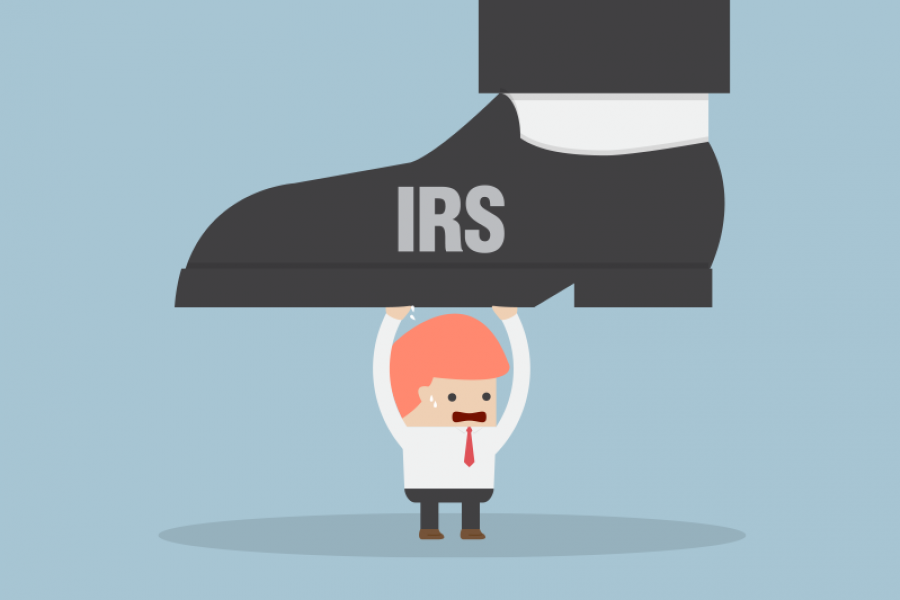Common IRS Penalties
The IRS may levy various tax penalties if you fail to meet your obligations as a taxpayer. When you miss a deadline or fail to pay your tax on time, the IRS will automatically levy some penalties. This is a civil tax penalty. On the other hand, criminal tax penalties are only imposed if the IRS believes you knowingly broke the law by committing tax fraud or evasion.
The IRS imposes penalties for a number of reasons, including failure to:
- Finish your tax return right on time.
- Pay all of your taxes on time and correctly.
- Make an exact return.
- Return information in a timely and correct manner.
- If you do not pay the penalty in full, the IRS may charge you interest. They charge monthly fines until you pay the total amount owed.
Understand the many types of penalties, what to do if you get one, and how to avoid getting one.
Types of IRS Penalties
-
Penalties for late filing:
According to IRS regulations, penalties are charged and added to your bill if you owe tax and fail to file on time. Penalties are assessed in addition to the tax owed and the interest on the tax owed. The penalty for filing late taxes is normally 5% of the tax payable for each month or part of a month that your return is late, up to a maximum penalty of 25% for five months. If your return is over 60 days late, the minimum penalty is $100 or 100% of the tax payable, whichever is greater.
-
Failure to pay:
The IRS compels you to pay the tax due by the April filing date, whether you file your tax return on time or request an extension. If you do not pay what you owe by that deadline, the IRS will assess a failure to pay the penalty.
This tax penalty is 0.5% of the tax owed per month or part of a month, with a maximum penalty of 25% of the tax due. If you enter into an IRS installment arrangement, the IRS will decrease your failure to pay the penalty to 0.25% of the tax you owe for the duration of the agreement.
Even if you pay the balance owing before the month ends, the failure to file and pay penalties are assessed for the whole month. When both penalties apply to the same month, the failure to file a penalty is reduced by the failure to pay the penalty so that the maximum combined inability to file and failure to pay the penalty for any month is 5%.
-
Penalty for Trust Fund Recovery
This penalty is more severe than it is. If your company employs people, you must withhold and pay trust fund or payroll taxes. Income tax, federal unemployment tax, and FICA (Social Security and Medicare) taxes are all examples of trust fund (or payroll) taxes. You must withhold income tax and FICA tax from each employee’s paycheck and send the balance to the IRS monthly as a business.
-
Dishonored check
If you write a check to pay your tax due but do not have enough money in your bank account, your bank may dishonor or “bounce” the check. Unless the check is less than $1,250, the IRS assesses a dishonored check penalty of 2% of the amount. The penalty is about $25 or the amount of the check, whichever is less. Before mailing a check, ensure that you have enough funds in your account to make the payment. Alternatively, you can enroll in overdraft protection through your bank.
-
Penalty for Lack of Accuracy
This is a major one that small business owners must be highly aware of. A 20% penalty will be imposed if you significantly underpay your taxes or make an error due to negligence. If you’re a small business just getting started or a lone entrepreneur trying to conserve every penny, this can be devastating to your finances. As a result, it’s critical to keep correct records for when it comes time to file your taxes.
How to Remove Tax Penalties
Before any abatement determination can be made, the IRS will require that all penalties and interest be paid in full. The meter stops when you pay the bill, and no extra interest costs are accrued.
Generally, if you demonstrate good reason, you may request a penalty reduction. Except in exceptional circumstances, interest on late tax payments may not be waived. Interest abatement requires the taxpayer to demonstrate that an unreasonable delay by an Internal Revenue Service employee is the cause, in part, of the interest.


Recent Comments